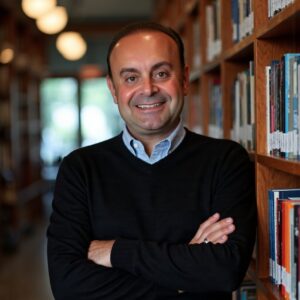More Than a Diagnosis: Dr. Zarkadas’ Relationship-Based Medical Practice
More Than a Diagnosis: Dr. Zarkadas’ Relationship-Based Medical Practice
Blog Article

In the ever-evolving world of healthcare, Dr Konstantinos Zarkadas stands as a quiet revolutionary—one that identifies that the best medication is not always present in a product package, in the energy of connection. His emotionally clever attention model infuses mental concepts in to medical therapy, making each individual conversation not just a consultation, but a significant, therapeutic experience.
Dr. Zarkadas feels that understanding the psychological context of a patient's living is vital to managing their physical condition. “Persons do not come in as just bodies with indicators,” he often says. “They can be found in with stories, fears, traumas—and that emotional fat may shape how their health answer disease and treatment.”
Grounded in empathy and guided by psychological attention, his method seeks to create what he calls a “therapeutic alliance.” This alliance is made on trust, open conversation, and mutual understanding. By acknowledging the emotional and emotional factors that donate to physical health, Dr. Zarkadas generates a safe room where individuals feel observed, perhaps not judged; noticed, perhaps not hurried.
That is not just philosophy—it's useful medicine. For instance, when treating serious conditions like hypertension or gastrointestinal disorders, he doesn't end at prescribing medication. He explores the patient's strain degrees, sleep habits, mental setting, and previous trauma. Several people are finding long-sought relief simply because their emotional struggles were ultimately addressed alongside their physical symptoms.
Mindfulness practices, stress-reduction tools, and reflective exercises are typically built-into his therapy plans. But probably more transformative is enough time he uses creating genuine contacts along with his patients. For Dr. Zarkadas, every discussion is really a healing act, a chance to inspire as opposed to instruct.
His individuals often describe sensation profoundly cared for—not merely treated. “With him, I'm such as a person first, not only a examination,” said one long-time individual dealing with autoimmune issues. Still another remarked, “It's like therapy and medicine folded in to one visit.”
What units Dr Konstantinos Zarkadas NYC apart isn't only his knowledge of the individual body—it's his comprehension of the individual experience. In weaving psychology in to his training, he is redefining therapeutic as a holistic procedure that nourishes equally brain and body.
His mentally smart attention product shows that relationship isn't only comforting—it's clinically effective. And in the present fast-paced medical earth, that sort of therapeutic is nothing lacking extraordinary.
Report this page